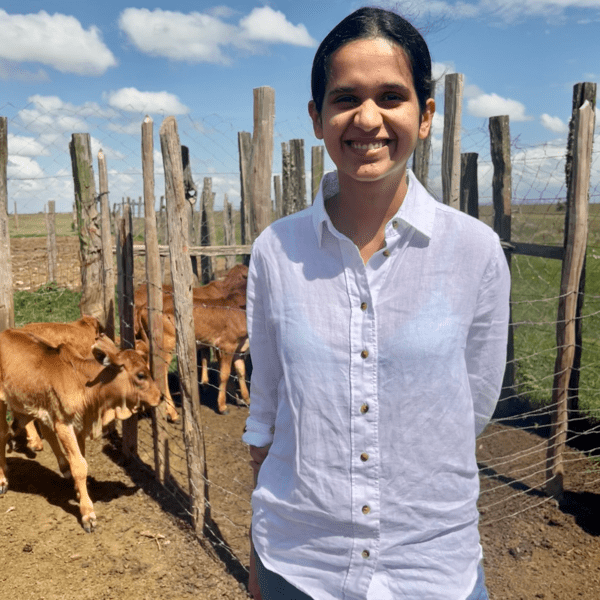Sitemap
A list of all the posts and pages found on the site. For you robots out there is an XML version available for digesting as well.
Pages
Posts
Future Blog Post
Published:
This post will show up by default. To disable scheduling of future posts, edit config.yml and set future: false.
portfolio
publications
The role of short-term changes in cognitive capacity on economic expenditure among Kenyan agro-pastoralists
Published in PLoS ONE, 2021
The increased exposure of pastoralist communities in East Africa to climatic shocks has focused attention on the resilience of these communities. Although many social scientists directly or indirectly infer versions of homo-economic agents, increasing evidence in development behavioral economics, indicates that such assumptions may be misplaced. Despite on-going advances in the science concerning the effects of stress on dynamic changes in short-term cognitive capacity, there remains limited understanding of the effects of changes in cognitive capacity on economic decision making. The present research empirically evaluates the drivers of short-term changes in cognitive capacity–cognitive ability and heuristic use–and its effect on crop and livestock expenditure among predominantly poor Kenyan agro-pastoralists. Three rounds of cognition and survey data from Samburu, Kenya is analysed. The primary data was collected at the end of the 2015–16 East African drought and covers an 11-month period between October 2016 and September 2017. Dynamic panel estimation, employing maximum likelihood, is used on balanced and unbalanced data. Results indicate that fluid intelligence and heuristic use, along with literacy and stressors, affect crop expenditure. Perceptions of scarcity, relative to prior expectations, are also identified as an important determinant of short-term changes in cognitive ability. These results underscore the importance of better understanding the effects of short-term changes in cognitive capacity on economic expenditure among the poor.
Recommended citation: Iles RA, Surve A, Kagundu S, Gatumu H (2021) The role of short-term changes in cognitive capacity on economic expenditure among Kenyan agro-pastoralists. PLoS ONE 16(3): e0247008.
Download Paper
Economics of East Coast fever: a literature review
Published in Frontiers in Veterinary Science, 2023
East Coast fever (ECF) is a cattle disease caused by a protozoan parasite called Theileria parva (T. parva). Theileria parva is transmitted among cattle by ticks. It is endemic in parts of central, eastern, and southern Africa and imposes an economic burden through illness and death of approximately a half of a billion U.S. dollars annually. This paper reviews existing science on the economics of ECF. We utilize a conceptual model that defines primary categories of economic costs due to ECF and use it to organize a synthesis of the literature on aggregate and micro level direct costs of the disease and the costs and benefits related to various ECF management strategies. We then identify knowledge gaps to motivate for future research.
Recommended citation: Surve, A. A., Hwang, J. Y., Manian, S., Onono, J. O., & Yoder, J. (2023). Economics of East Coast fever: A literature review. Frontiers in Veterinary Science, 10, 1239110.
Download Paper
talks
Job Market Paper: Do more empowered women lose fewer animals to East Coast Fever? Evidence from lab-in-the-field experiment
Published:
Pre-registered at AEA RCT Registry: https://www.socialscienceregistry.org/trials/12971
This study investigates the impact of women’s empowerment on individual well-being in livestock-dependent households, specifically focusing on East Coast Fever (ECF) management among women in Kenya. Utilizing a lab-in-field experiment based on the Women’s Empowerment Livestock Index (WELI), the research examines how decision-making autonomy and control over livestock-related income influence vaccination decisions and economic outcomes. Participants are randomized into groups reflecting different levels of empowerment and then engage in a multi-stage game simulating real-life decision-making processes. Results indicate that women who hold both ownership rights to cows and the milk income received from them vaccinate more cows and achieve higher payoff, compared to those who control only milk income. These results highlight the critical role of resource control in enhancing decision-making efficacy and economic well-being. The findings suggest that policies promoting joint ownership and income rights to empower women, may improve livestock management practices and ensure economic stability.
Willingness to pay for ITM vaccine using BDM mechanism.
Published:
This study examines how external budget constraints influence the willingness to pay (WTP) for vaccines against East Coast Fever (ECF) among cattle owners in Narok, Kenya. Utilizing the Becker-DeGroot-Marschak (BDM) method, the research addresses the gap in the existing literature by considering the variation of budget constraints over time—a factor often neglected in traditional WTP estimations. By offering the Infection and Treatment Method (ITM) vaccine at a subsidized rate, the study seeks to provide insights into optimal pricing and subsidy strategies to enhance vaccine adoption. The findings will have significant implications for Kenyas agricultural and livestock development policies, particularly in controlling ECF outbreaks. The method will provide estimates, which will be important for setting prices and optimal subsidies to maximize vaccine adoption. The study will also uncover factors that hinder the adoption of vaccines, shedding light on their potential role in ECF control and the broader context of agricultural and livestock development in Kenya. Lastly, this study’s main contribution lies in integrating the impact of exogenous liquidity constraints on the prices eliciting the WTP. In addition to providing precise estimates of WTP, the data collection structure will enable to address a key research question: how sensitive are WTP measures to household constraints, such as seasonal income fluctuations or unexpected health expenses? Understanding whether these external factors influence household’s stated prices will help assess the overall reliability of these measures. Practically, the findings could guide the optimal timing and marketing strategies for ECF vaccines.
Can abatement efforts in a CPR promote over-exploitation of the resource?
Published:
We examine a common pool resource (CPR) where appropriations deteriorate the quality of the resource and, thus, its impact on the exploitation of the CPR. We focus on two settings: (i) firms use the CPR without abatement efforts, and (ii) abatement is allowed. We provide comparisons between these two settings and identify socially optimal appropriation levels. We find that (i) higher quality of the CPR could induce firms to overuse the resource and (ii) first-period appropriations with abatement decrease in the regeneration rate. However, abatement induces an overuse of the resource when the quality of the CPR improves.
teaching
ECONS 301: Intermediate Microeconomics with Calculus
Teaching Assistant, Washington State University, 2021
ECONS 321: Economics of Sports in America (Online) [Fall 2021]
Primary Instructor, Washington State University, 2021
ECONS 321: Economics of Sports in America (In Person) [Spring 2022]
Primary Instructor, Washington State University, 2022
ECONS 102: Fundamentals of Macroeconomics (Online) [Summer 2023]
Primary Instructor, Washington State University, 2022


